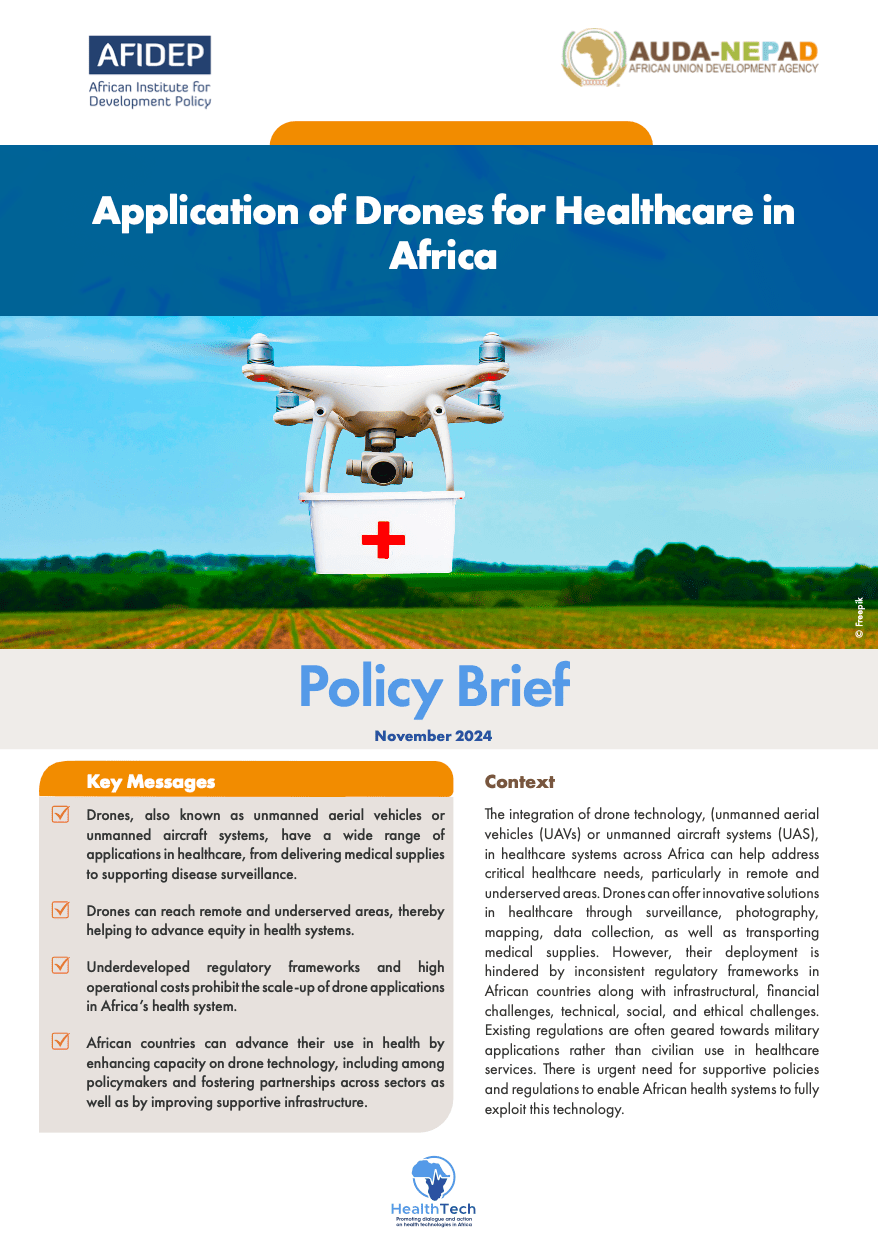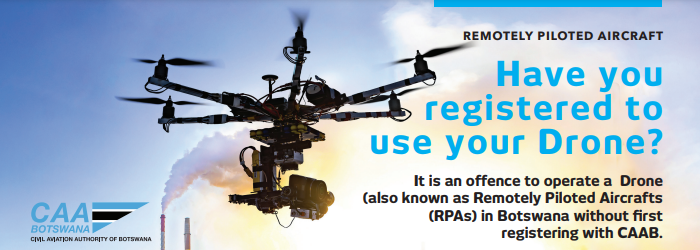Drones, or unmanned aerial vehicles (UAVs), are aircraft operated without a human pilot onboard. They can be controlled autonomously or remotely and vary in size and functionality, from small consumer models to large military-grade systems. Drones are equipped with a range of technologies such as sensors and cameras, making them versatile tools for numerous applications.
Current Applications of Drones in Healthcare in Africa
- Drones transport medical supplies, vaccines, and diagnostic samples to remote or underserved regions. For instance, Zipline has been delivering blood and vaccines in Rwanda since 2016, improving access to essential health services.
- Equipped with sensors and cameras, drones help track disease patterns, identify breeding sites, and manage vector-borne diseases like malaria and dengue.
- Drones address supply chain disruptions by delivering essential medical supplies quickly and efficiently to hard-to-reach areas.
- Drones support telemedicine services by enabling remote consultations especially in remote communities.
- Drones provide timely assistance during emergencies, such as natural disasters and disease outbreaks, by delivering medical supplies and assessing damage.
- Drones can spread health education and public health information in resource-limited settings, promoting health literacy and disease prevention.
Policy Recommendations to Scale up the Use of Drones in Health Services in Africa
To promote widespread use of drones in healthcare, policymakers in African countries should:
- Create clear regulations and safety standards for drone use in healthcare.
- Invest in infrastructure and training for drone operations.
- Promote partnerships between stakeholders to leverage resources and expertise.
- Involve local communities in the planning and implementation of drone-based services.
By leveraging drones effectively, Africa can enhance healthcare delivery, improve emergency responses, and reduce disparities in access to medical services.

